
Follies is a musical with music and lyrics by Stephen Sondheim and a book by James Goldman.
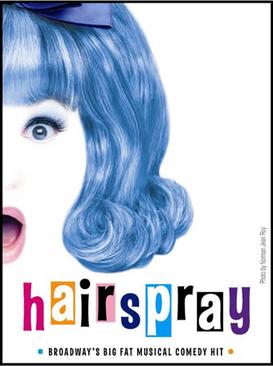
Hairspray is an American musical with music by Marc Shaiman and lyrics by Marc Shaiman and Scott Wittman, with a book by Mark O'Donnell and Thomas Meehan, based on John Waters's 1988 film of the same name. The songs include 1960s-style dance music and "downtown" rhythm and blues. Set in 1962 Baltimore, Maryland, the production follows teenage Tracy Turnblad's dream to dance on The Corny Collins Show, a local TV dance program based on the real-life Buddy Deane Show. When Tracy wins a role on the show, she becomes a celebrity overnight, leading to social change as Tracy campaigns for the show's integration.

Mack & Mabel is a musical with a book by Michael Stewart and music and lyrics by Jerry Herman. The plot involves the tumultuous romantic relationship between Hollywood director Mack Sennett and Mabel Normand, who became one of his biggest stars. In a series of flashbacks, Sennett relates the glory days of Keystone Studios from 1911, when he discovered Normand and cast her in dozens of his early "two-reelers", through his creation of Sennett's Bathing Beauties and the Keystone Cops to Mabel's death from tuberculosis in 1930.

Swing Time is a 1936 American musical comedy film, the sixth of ten starring Fred Astaire and Ginger Rogers. Directed by George Stevens for RKO, it features Helen Broderick, Victor Moore, Betty Furness, Eric Blore and Georges Metaxa, with music by Jerome Kern and lyrics by Dorothy Fields. Set mainly in New York City, the film follows a gambler and dancer, "Lucky" (Astaire), who is trying to raise money to secure his marriage when he meets dance instructor Penny (Rogers) and begins dancing with her; the two soon fall in love and are forced to reconcile their feelings.
Jerry Mitchell is an American theatre director and choreographer.
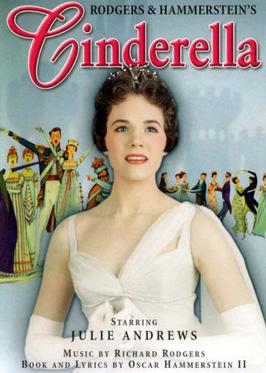
Rodgers and Hammerstein's Cinderella is a musical written for television, but later played on stage, with music by Richard Rodgers and a book and lyrics by Oscar Hammerstein II. It is based upon the fairy tale Cinderella, particularly the French version Cendrillon, ou la petite pantoufle de verre, by Charles Perrault. The story concerns a young woman forced into a life of servitude by her cruel stepmother and self-centered stepsisters, who dreams of a better life. With the help of her fairy godmother, Cinderella is transformed into a princess and finds her prince.

Contact is a musical "dance play" that was developed by Susan Stroman and John Weidman, with its "book" by Weidman and both choreography and direction by Stroman. It ran both off-Broadway and on Broadway in 1999–2002. It consists of three separate one-act dance plays.

Fosse is a three-act musical revue showcasing the choreography of Bob Fosse. The musical was conceived by Richard Maltby Jr., Chet Walker, and Ann Reinking.

Seesaw is a 1973 American musical with a book by Michael Bennett, music by Cy Coleman, and lyrics by Dorothy Fields.
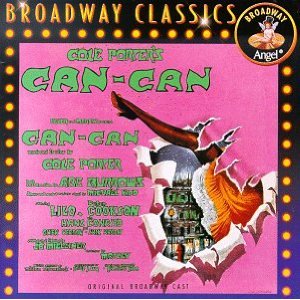
Can-Can is a musical with music and lyrics by Cole Porter, and a book by Abe Burrows. The story concerns the showgirls of the Montmartre dance halls during the 1890s.
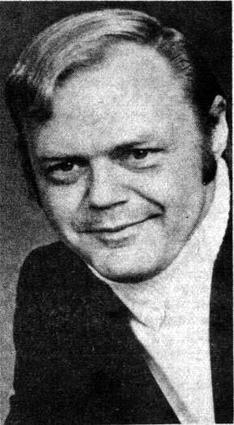
Light Opera of Manhattan, known as LOOM, was an off-Broadway repertory theatre company that produced light operas, including the works of Gilbert and Sullivan and European and American operettas, 52 weeks per year, in New York City between 1968 and 1989.

The Rink is a musical with a book by Terrence McNally, lyrics by Fred Ebb, and music by John Kander, the tenth Kander and Ebb collaboration.

Bring in 'da Noise, Bring in 'da Funk is a musical that debuted Off-Broadway at the New York Shakespeare Festival/Public Theater in 1995 and moved to Broadway in 1996. The show was conceived and directed by George C. Wolfe, and featured music by Daryl Waters, Zane Mark and Ann Duquesnay; lyrics by Reg E. Gaines, George C. Wolfe and Ann Duquesnay; and a book by Reg E. Gaines. The choreography was by Savion Glover.

High Fidelity is a musical with music by Tom Kitt, lyrics by Amanda Green, and a book by David Lindsay-Abaire.
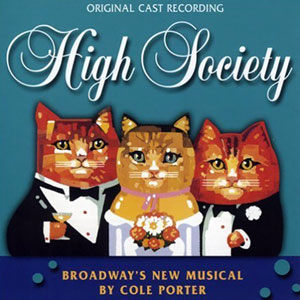
High Society is a musical comedy with a book by Arthur Kopit and music and lyrics by Cole Porter. Some updated or new lyrics were provided by Susan Birkenhead. The musical is based on Philip Barry's 1939 stage comedy The Philadelphia Story and the subsequent 1956 musical film adaptation, High Society, which features Porter's songs. The musical includes most of the music featured in the movie, along with several songs selected from other Porter musicals. It premiered on Broadway in 1998 and has since been revived. Another musical adaptation of the story had opened in London in 1987 with a different book by Richard Eyre.

The Touring Broadway Awards (TBAs) recognized outstanding achievement in Broadway plays and musicals that tour North America. Founded in 2001 by The Broadway League, the TBAs celebrated excellence in touring Broadway by honoring artists and productions. Until 2004, they were known as the National Broadway Theatre Awards and were held until 2009. The TBAs were bestowed at a ceremony held in New York each spring. They were the 1st national awards that honored first class touring Broadway shows.
A Bronx Tale is an autobiographical one-man show written and performed by Chazz Palminteri. It tells the coming-of-age story of Calogero Anello, a young New Yorker torn between the temptations of organized crime and the values of his hardworking father. It originally premiered in Los Angeles in 1989, before moving Off-Broadway. A film version involving Palminteri and Robert DeNiro was released in 1993. In 2007, Palminteri performed his one-man show on Broadway and on tour.

Catch Me If You Can is a musical drama with a libretto by Terrence McNally and a theatrical score by Marc Shaiman and Scott Wittman. It follows the story of a con artist named Frank Abagnale. A majority of the plot is borrowed from the 2002 film of the same name, which in turn was based on the 1980 autobiography of the same name by Abagnale and Stan Redding.
An American in Paris is a one-act ballet choreographed by Christopher Wheeldon, to the eponymous music by George Gershwin, costumes designed by Holly Hynes, sets designed by Adrianne Lobel and lighting designed by Natasha Katz. The ballet premiered on May 4, 2005 at the New York State Theater. Wheeldon later directed and choreographed the musical adaptation of the An American in Paris film.

Bullets Over Broadway the Musical is a jukebox musical written by Woody Allen, based on his and Douglas McGrath's 1994 film Bullets Over Broadway about a young playwright whose first Broadway play is financed by a gangster. The score consists of jazz and popular standards of the years between World War I and about 1930 by various songwriters. It received its premiere on Broadway, in 2014, at the St. James Theatre, and closed on August 24, 2014, after over a hundred performances.
















